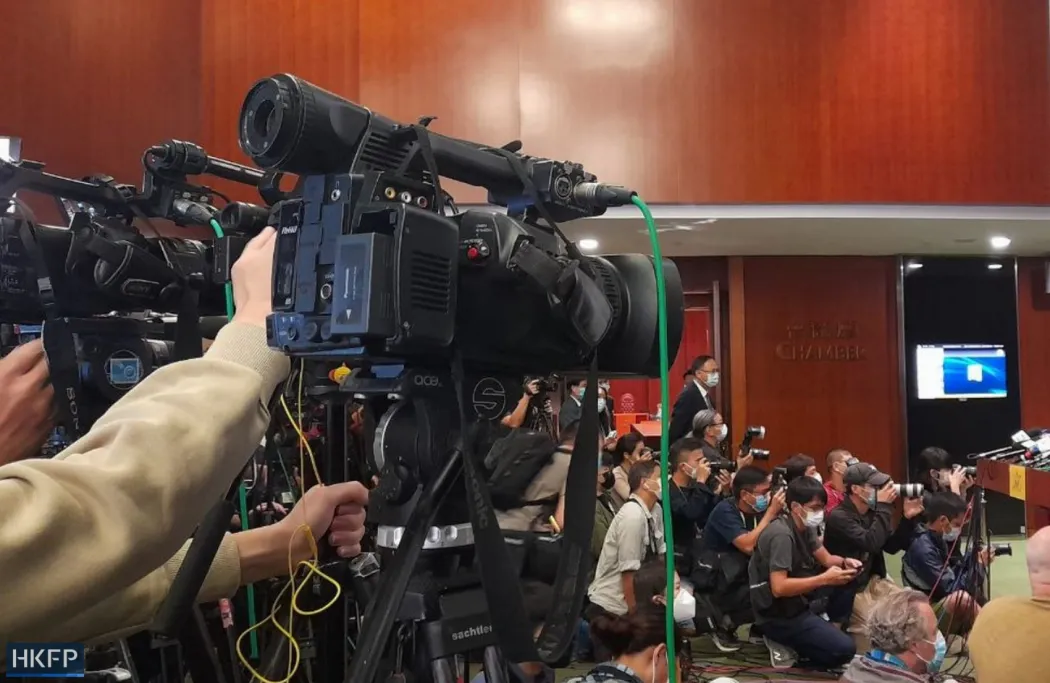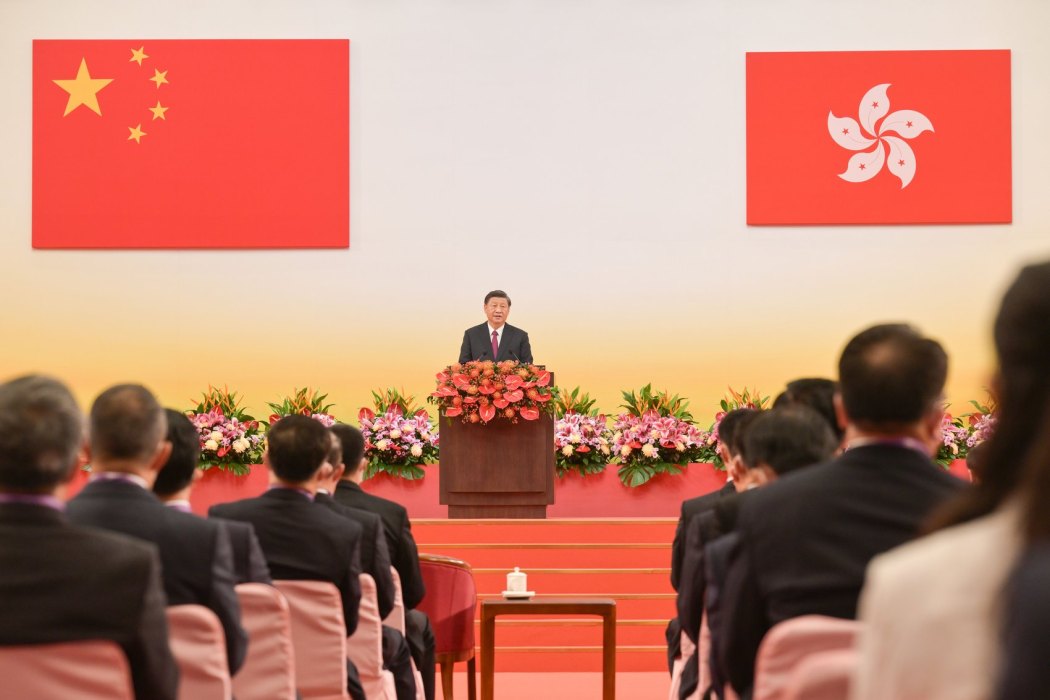The Hong Kong government has said that it cannot reveal which media outlets it did, and did not, invite to cover last Friday’s leadership inauguration because disclosing such information “would harm or prejudice Hong Kong’s security.”

The Information Services Department (ISD) rejected an Access to Information request lodged by HKFP after the authorities effectively barred several local and international mainstream outlets from covering events surrounding the inauguration and the 25th anniversary of the Handover last Friday.
Japan’s Nikkei, Asahi Shimbun, and Kyodo News, Taiwan’s CTV, Getty Images in the US, Europe’s EPA as well as Hong Kong’s InMedia, PSHK, TMHK and HKFP were among media outlets not invited. Meanwhile, journalists from Ming Pao, HK01, Bloomberg, Reuters, the South China Morning Post, Now News and Agence France-Presse had applications to cover the events refused in the case of selected journalists.
“We are not in a position to provide the information requested in your application having regard to para 2.3 of the Code on Access to Information, which provides that the disclosure of information which would harm or prejudice Hong Kong’s security may be refused,” an ISD spokesperson claimed.

The claims about security come despite the fact that only media already approved to attend government events by the Office for Film, Newspaper and Article Administration would have been considered to cover the Handover anniversary and the visit by China’s Xi Jinping.
HKFP has requested an internal review and will escalate a complaint to the government watchdog, the Ombudsman.
Gov’t cites Covid
In its decision to restrict media access, the ISD cited the Covid-19 pandemic and issues surrounding venue capacity at Wan Chai’s exhibition centre. However, there were no such restrictions on the press when the small-circle election was held at the same venue two months earlier. Moreover, there have been no security issues involving any government-registered media outlets in recent memory.
On June 16, HKFP requested the list of approved media along with internal guidelines, communications and policies relating to the list.

“[T]he Government has adopted suitable media arrangements after taking into consideration the latest epidemic situation, security requirements and venue constraints, etc,. These factors pose impact on the number of media organisations invited to cover the events,” the refusal notice said.
At the time, the Hong Kong Journalists Association criticised the move: “”[C]iting a vague reason for rejection seriously undermines press freedom in Hong Kong. The HKJA urges the authorities to make remedial arrangements and protect the right to report.”
Explainer: The decline of Hong Kong’s press freedom under the national security law
The HKJA said press freedom was an “important cornerstone” of One Country, Two Systems and the government’s rejections of journalists may hinder some news outlets from providing live coverage of a historical moment.
‘Unlimited’ press freedom
Earlier in June, John Lee – now the city’s leader – said: “As long as they do not violate the law, freedom of the press is unlimited.” In April, he said that press freedom was already in the “pocket” of all Hongkongers so it did not need defending. Lee has promised a “fake news” law and a local version of the security law during his tenure.
Hong Kong has plummeted down the Reporters Without Borders international press freedom ranking. Over the last year alone it dived 68 places to 148th, sandwiching the international business hub between the Philippines and Turkey, as the NGO cited journalist arrests, newsroom raids and the closure of at least three media outlets.
Support HKFP | Policies & Ethics | Error/typo? | Contact Us | Newsletter | Transparency & Annual Report | Apps
Help safeguard press freedom & keep HKFP free for all readers by supporting our team

LATEST FROM HKFP
HKFP has an impartial stance, transparent funding, and balanced coverage guided by an Ethics Code and Corrections Policy.
Support press freedom & help us surpass 1,000 monthly Patrons: 100% independent, governed by an ethics code & not-for-profit.










